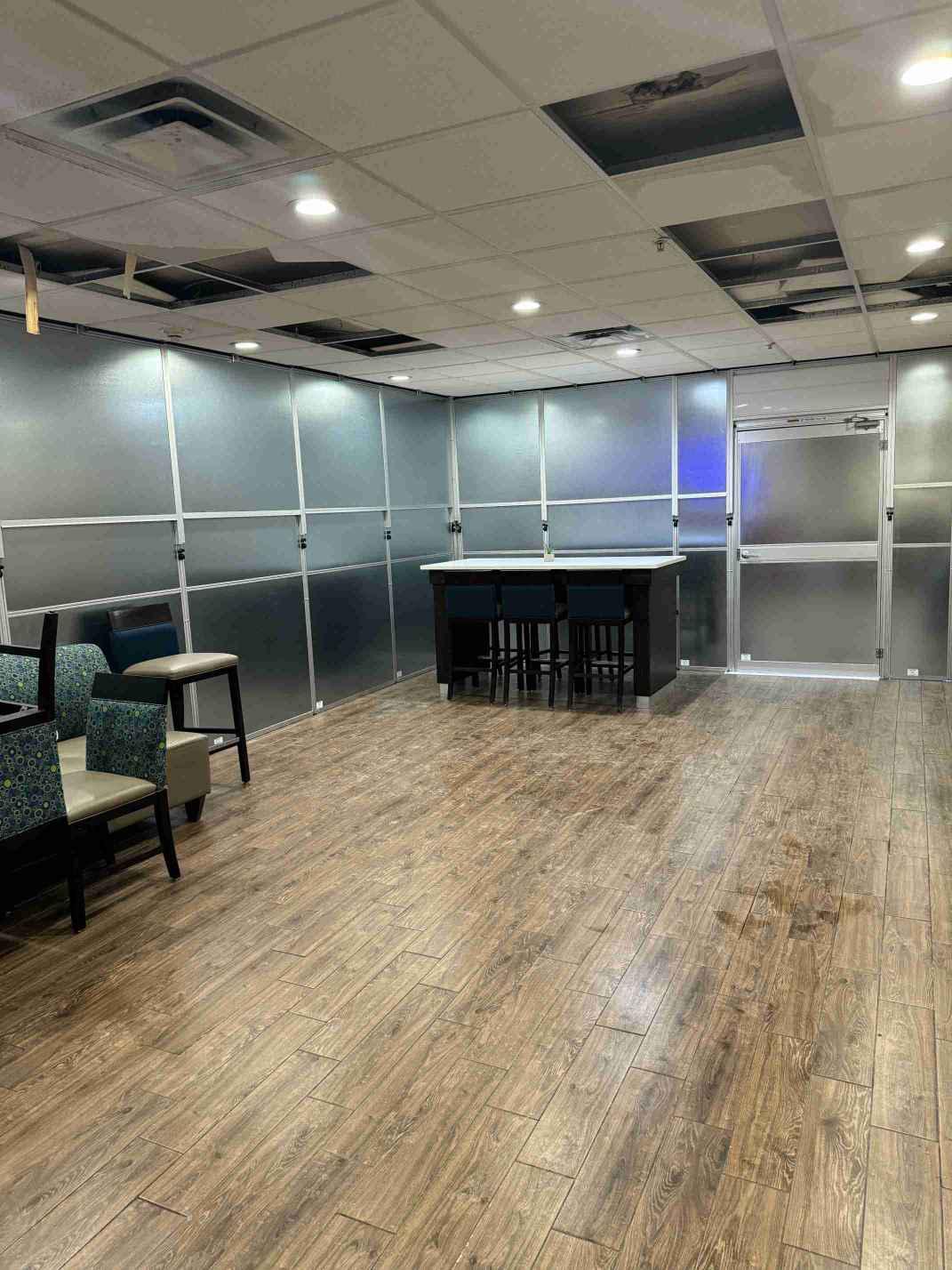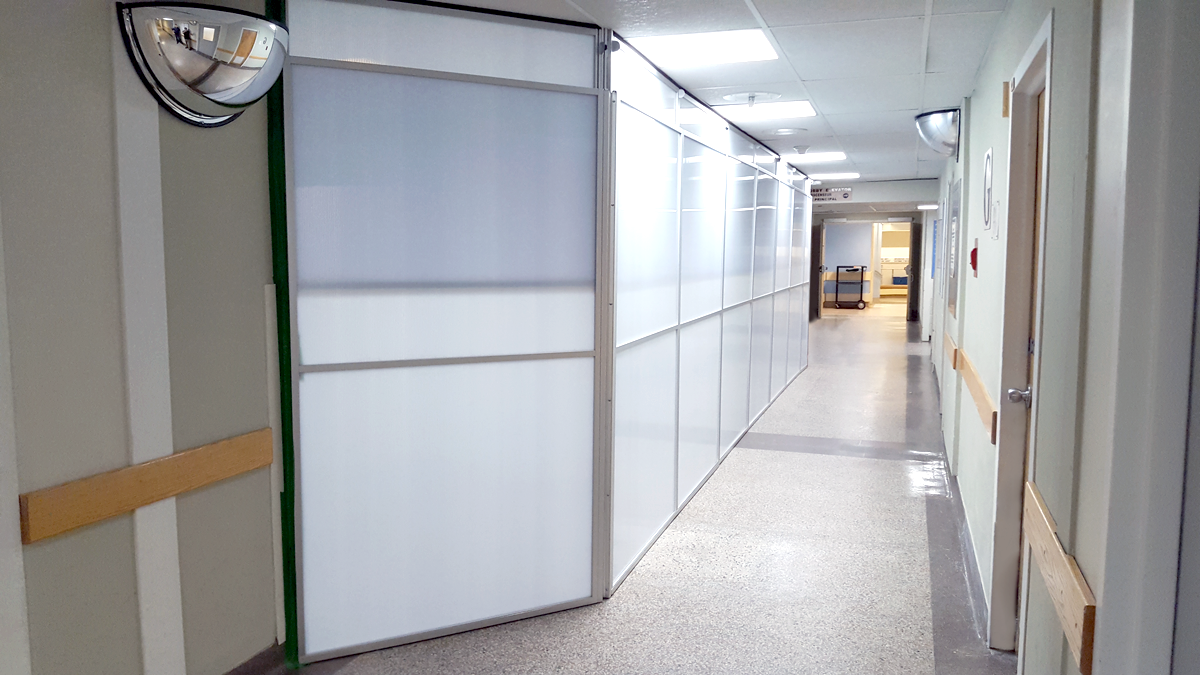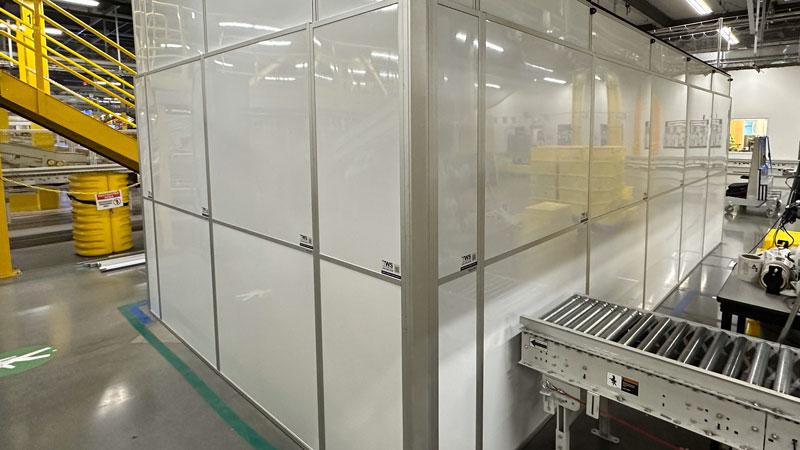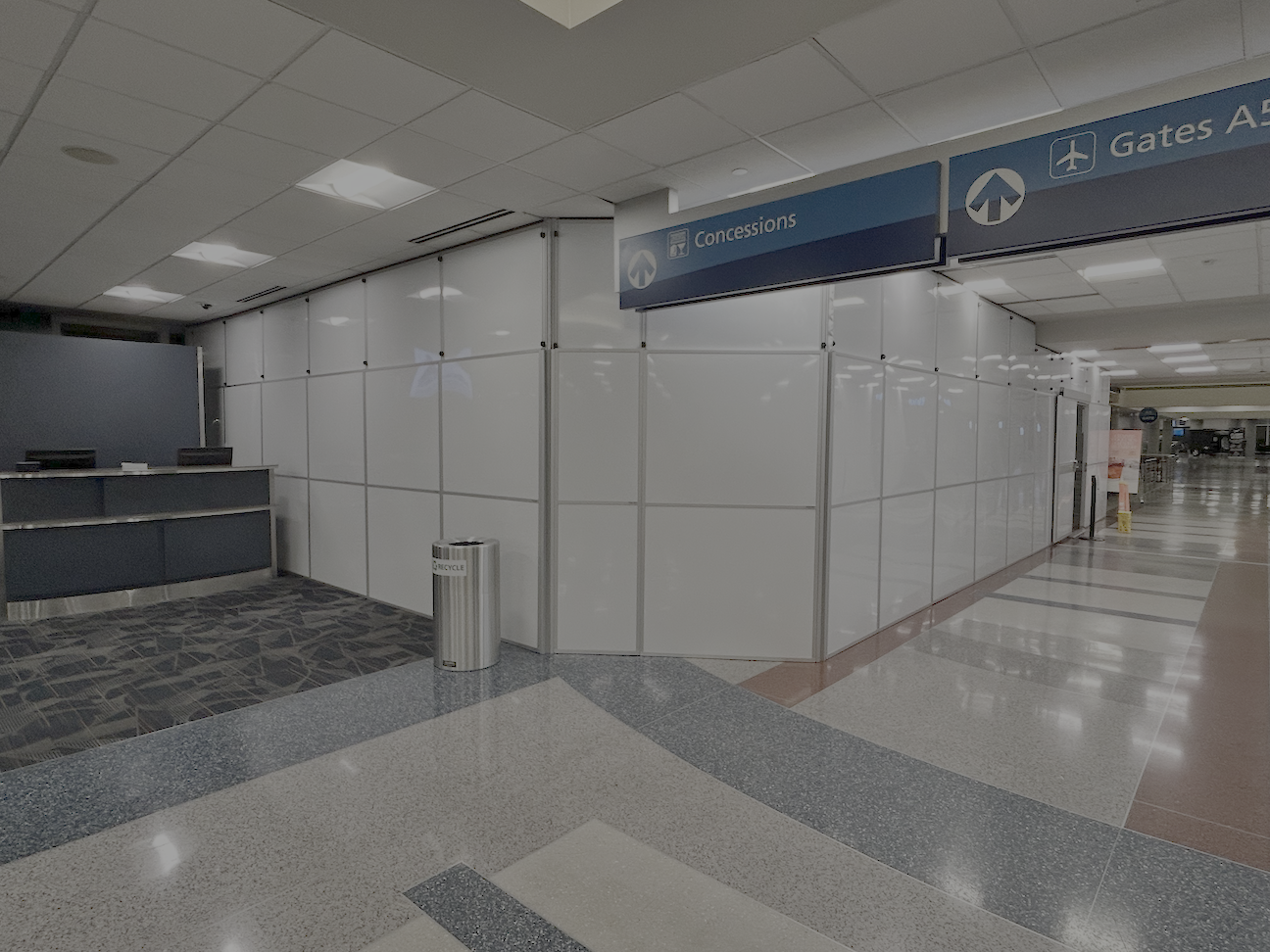Repairs and upgrades are essential to the reputation and success of every hotel. However, when construction is actually underway, it threatens the peace and safety of every patron.
With hotel renovation and guest travel back on the rise, management needs to improve facilities without sacrificing the guest experience. This is where Temporary Wall Systems come into play.
Keep reading to learn why temporary walls are the fastest, most effective, and cost-friendly answer to a few of the hospitality industry’s biggest renovation challenges.
Temporary Wall Systems: A sustainable option for hotel construction and renovations
Temporary wall systems offer a seamless solution for concealing construction messes, dampening noise, controlling dust and debris, and keeping guests out of harm’s way.
Well-traveled guests are accustomed to seeing temporary drywall in hotels undergoing renovations. Temporary drywall is great for maintaining order during long-term projects but can be labor-intensive to install and finish for maximum aesthetic value. Plus, it ends up in a landfill at the end of the project.
Folding room dividers on wheels do a decent job of containing an area, but the gaps above and below the panels do not make an effective barrier.
Plastic sheeting may blur the view and control the dust. However, it also drastically degrades the aesthetic value and gives guests the impression that the hotel is currently unprepared to offer its best-quality service.
Guests can walk past a bank of temporary walls and be completely unaware that anything is amiss. The work zone is completely concealed with reusable walls that can even include doors. The benefits apply to both long and short-term projects.


Contains clutter for guest experience
The most straightforward benefit is the reduction in complaints that come from a mess of debris and materials cluttering common areas.
Temporary walls also dampen sound. The sight and sound of construction are much less likely to be the first thing guests notice.
For a safer home away from home
Hotels are uniquely responsible for providing round-the-clock safety. Dining, sleeping, exercising, and attending events all occur on the same property, increasing the chances of injury on the premises.
Temporary walls are a clear barrier that completely contains hazardous work zones until removal. Crews will also be safer working in occupied spaces without guests breaching the perimeter.
Ideal for large renovation projects
Large construction projects may eventually span entire floors or interrupt certain amenities at different phases. This requires shifting work zone security strategies.
Fortunately, temporary wall systems are easy to move and adjust with the crew. The height and area of modular walls can be reconfigured to cover the next phase of the project.
Clearing a safe path forward
A hotel under construction needs space to continue receiving guests, work materials, and supply deliveries. When construction leads to clutter in common areas, it increases tripping hazards – a leading cause of injury in the hospitality industry.
As a total containment solution, temporary walls can be assembled in custom configurations to direct foot traffic without confusion or debris. Temporary walls can even be assembled to create an additional temporary storage area or event space.
Stay on schedule
Delays are common in hotel renovations. Crews in a secure, clearly defined area can work with less interruption and time spent maintaining safe passage for visitors and employees. This may encourage sustained productivity for project phases completed on schedule.
Temporary walls help hotels retain brand identity
A hotel’s brand is part of the guest experience. No hotel makes stacks of boxes, sawdust, broken tile, and flats of material their brand. Temporary wall systems are attractive enough on their own but can also have custom-branded wraps applied to maintain identity.
Let TWS handle the logistics
Keeping guests happy is priority number one. Managing temporary walls does not have to be another task on the renovation to-do list.
Temporary Wall Systems (TWS) is a full-service provider, delivering, assembling, and dismantling your walls. Our experts are prepared to coordinate with your project manager to create a custom solution for your hotel.



